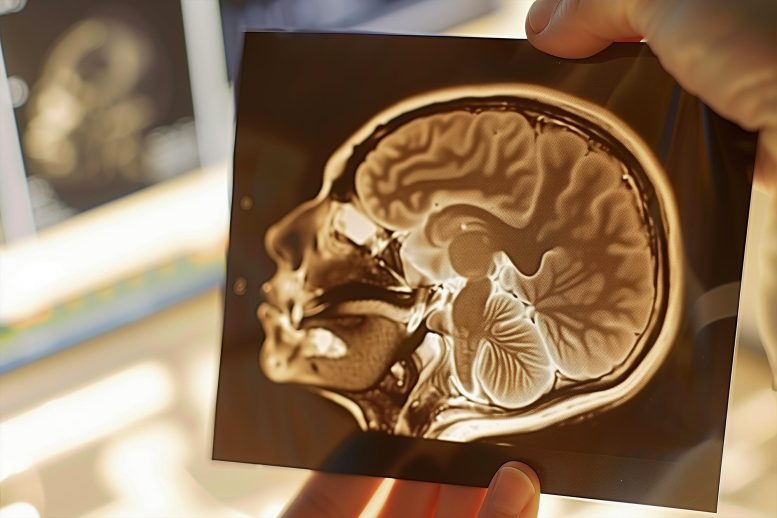
First study to provide evidence of the direct impact of serotonin on the development of prefrontal cortex.
A new study published today (February 16) in Nature Communications provides direct evidence that antidepressant use during pregnancy can impact a child’s brain development and contribute to the risk of mental health disorders later in life.
The study, led by researchers at the University of Colorado Anschutz Medical Campus, focused on the effect of fluoxetine, commonly used in medications such as Prozac and Sarafem for treating depression and perinatal depression, on a developing prefrontal cortex.
Serotonin’s Role in Brain Development
Since fluoxetine works by increasing the levels of serotonin in the brain, the researchers looked at the impact serotonin has on prefrontal cortex development in a fetus.
“While it is known that serotonin plays a role in the brain development, the mechanisms responsible for this influence, specifically in the prefrontal cortex, have been unclear. The prefrontal cortex, the most evolved brain region, plays a central role in highest-order cognition, which is why we focused our study on finding the answer from this brain area,” said lead author Won Chan Oh, PhD, assistant professor in the Department of Pharmacology at CU Anschutz.
Oh and his student, Roberto Ogelman, a neuroscience PhD candidate, found serotonin directly influences nascent and immature excitatory synaptic connections in the prefrontal cortex, which if disrupted or dysregulated during early development can contribute to various mental health disorders.
Experimental Findings and Future Directions
“Our research uncovers the specific processes at the synaptic level that explain how serotonin contributes to the development of this important brain region during early-life fluoxetine exposure,” adds Oh. “We are the first to provide experimental evidence of the direct impact of serotonin on the developing prefrontal cortex when fluoxetine is taken during pregnancy, because fluoxetine not only crosses the placenta but also passes into breast milk.”
To study the effect, the researchers looked at the impact of deficiency and surplus of serotonin on brain development in mice. They discovered that serotonin is not just involved in overall brain function but also has a specific role in influencing how individual connections between neurons change and adapt, contributing to the brain’s ability to learn and adjust.
“Understanding this correlation has the potential to help with early intervention and the development of new therapeutics for neurodevelopmental disorders involving serotonin dysregulation,” said Oh.
The researchers say healthcare professionals should be involved in decision-making around individualized care for pregnant women, including discussing the benefits and side effects of antidepressants and possible non-pharmacological interventions for postpartum depression.
The researchers plan to continue studying the impact of fluoxetine, next examining its impact on a developing teenage brain.
Reference: “Serotonin modulates excitatory synapse maturation in the developing prefrontal cortex” by Roberto Ogelman, Luis E. Gomez Wulschner, Victoria M. Hoelscher, In-Wook Hwang, Victoria N. Chang and Won Chan Oh, 16 February 2024, Nature Communications.
DOI: 10.1038/s41467-024-45734-w
1 Comment
Serotonin based antidepressants are one of the few options to treat depression during pregnancy. The reporter suggests (the researchers do not) that influencing neocortex of the fetus by altering serotonin levels as observed will lead to mental illness in the child. At this time there is no such evidence. Such non-information could lead to antidepressant refusal with its associated poor outcome for both mother and baby. Please give the public information that is accurate.